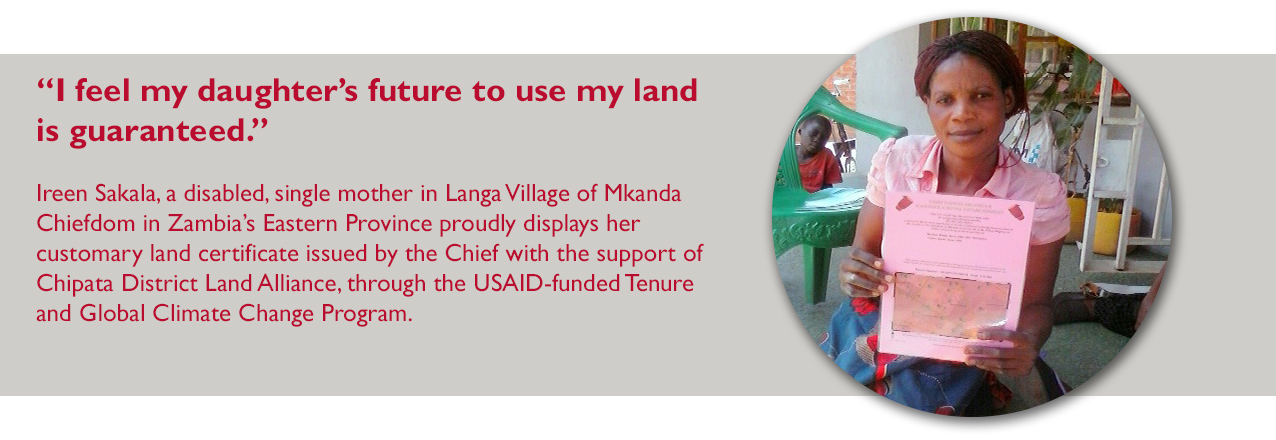When Ireen Sakala, a smallholder farmer in Mkanda Chiefdom, heard about a new effort to document land ownership, she feared that as a disabled, single woman, she might be excluded. Confined to a wheelchair since childhood and unable to find employment, Ireen depends on land inherited from her parents for her family’s livelihood. Her land, like most rural land in Zambia, has no documentation and is administered through inheritance from family and verbal histories under the authority of a village headperson and the chief. With a growing population and increased land scarcity, pressures on property rights and land security are rising.
Since 2014, a local civil society organization, the Chipata District Land Alliance (CDLA), with USAID support, has helped chiefs and hundreds of villages document land allocations and provide land certificates to Ireen and hundreds of other villagers. Ireen joined her neighbors, including thousands of women, in having her land rights documented. Holding her certificate, Ireen noted, “I am very happy that equal opportunities are being accorded. I now have a certificate to my field issued in my name and I have registered my daughter as a person of interest to my land. I feel my daughter’s future to use my land is guaranteed.”
Elected as the Secretary of the Village Land Committee, Ireen has now undertaken a leadership role administering the village land register to help others in her community access the same rights she has gained.
Working with organizations such as the CDLA, Zambia’s traditional leaders and government are recognizing the benefits of strengthening community and household land rights. With over three-quarters of Zambia’s land falling under customary tenure, leadership and support from chiefs and chieftainesses creates optimism for the future in farmers like Ireen.


